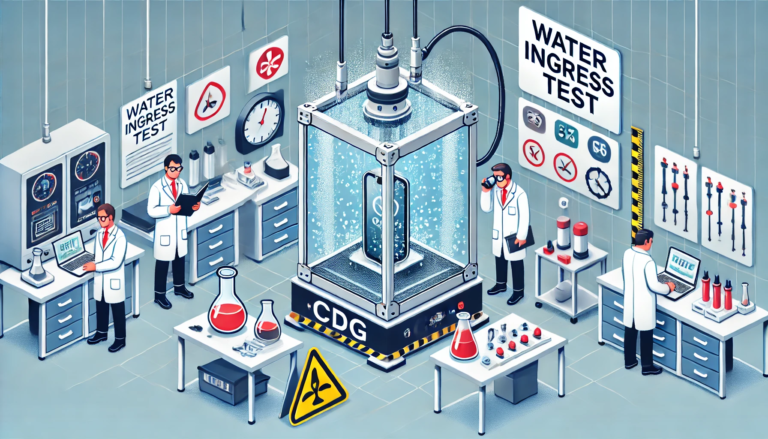In today’s technologically driven world, ensuring the reliability and durability of electronic devices and components is more critical than ever. This is where ingress protection (IP) testing comes into play. For manufacturers and consumers alike, understanding the role of third-party testing labs in IP testing is crucial to maintaining product quality and meeting regulatory standards. In this blog post, we’ll delve into how third-party testing labs contribute to IP testing and why their involvement is essential for your products’ success.
Imagine a state-of-the-art gadget failing prematurely due to exposure to dust or water. Such issues not only harm the device’s functionality but also affect the user experience and brand reputation. This is where ingress protection (IP) ratings come into play, defining how well a product resists environmental factors like dust and water. While many manufacturers conduct internal IP testing, third-party testing labs play a vital role in providing unbiased, accurate, and reliable results. In this blog, we’ll explore why third-party testing is indispensable for IP ratings and how it benefits both manufacturers and consumers.
The Importance of IP Testing
Ingress protection testing is designed to assess the resistance of electronic enclosures to dust and water. The IP rating system, defined by the IEC standard 60529, provides a clear measure of a product’s durability. Products are rated on a scale from IP00 to IP69K, where higher numbers indicate better protection against environmental elements.
Why IP Testing Matters:
Product Reliability: Ensuring that a product can withstand environmental conditions helps in preventing early failures and extending its lifespan.
Consumer Confidence: Accurate IP ratings reassure consumers about the durability and quality of their purchases.
Regulatory Compliance: Many industries require compliance with specific IP ratings to meet safety and quality standards.
The Role of Third-Party Testing Labs
Third-party testing labs are independent entities that conduct rigorous evaluations of products to verify their IP ratings. Here’s how they contribute to the testing process:
Impartial Evaluation:
Objective Assessment: Third-party labs provide an unbiased assessment of a product’s IP rating, ensuring that the results are not influenced by the manufacturer.
Credibility: Their certification carries more weight and credibility, as it is not tied to the manufacturer’s interests.
Expertise and Precision:
Specialized Knowledge: These labs are equipped with the latest technology and expertise to conduct precise and thorough IP testing.
Accurate Results: Advanced testing equipment and standardized procedures ensure that the results are accurate and consistent.
Regulatory Compliance:
Industry Standards: Third-party labs ensure that products meet international and industry-specific standards, helping manufacturers comply with regulations.
Certification: Their certification helps in gaining market access and demonstrates commitment to quality and safety.
Improved Quality Assurance:
Continuous Monitoring: Regular third-party testing helps in maintaining product quality and catching issues early in the development cycle.
Enhanced Reliability: By identifying potential weaknesses, manufacturers can make necessary improvements before the product reaches the market.
Practical Tips for Manufacturers
- Choose Accredited Labs: Select third-party labs accredited by recognized organizations to ensure reliable and standardized testing.
- Understand Testing Protocols: Familiarize yourself with the testing procedures and standards relevant to your industry.
- Review Test Reports: Carefully review and understand the test reports provided by the lab to address any identified issues.
- Collaborate with Labs: Work closely with the testing lab to address any potential problems and improve product design.
Third-party testing labs play a pivotal role in IP testing by offering impartial, expert evaluations that ensure products meet stringent standards for dust and water resistance. Their involvement not only enhances product reliability and consumer confidence but also helps manufacturers comply with regulatory requirements and maintain high-quality standards. By leveraging the expertise of third-party labs, manufacturers can deliver products that stand up to environmental challenges, providing peace of mind to consumers and strengthening brand reputation.


